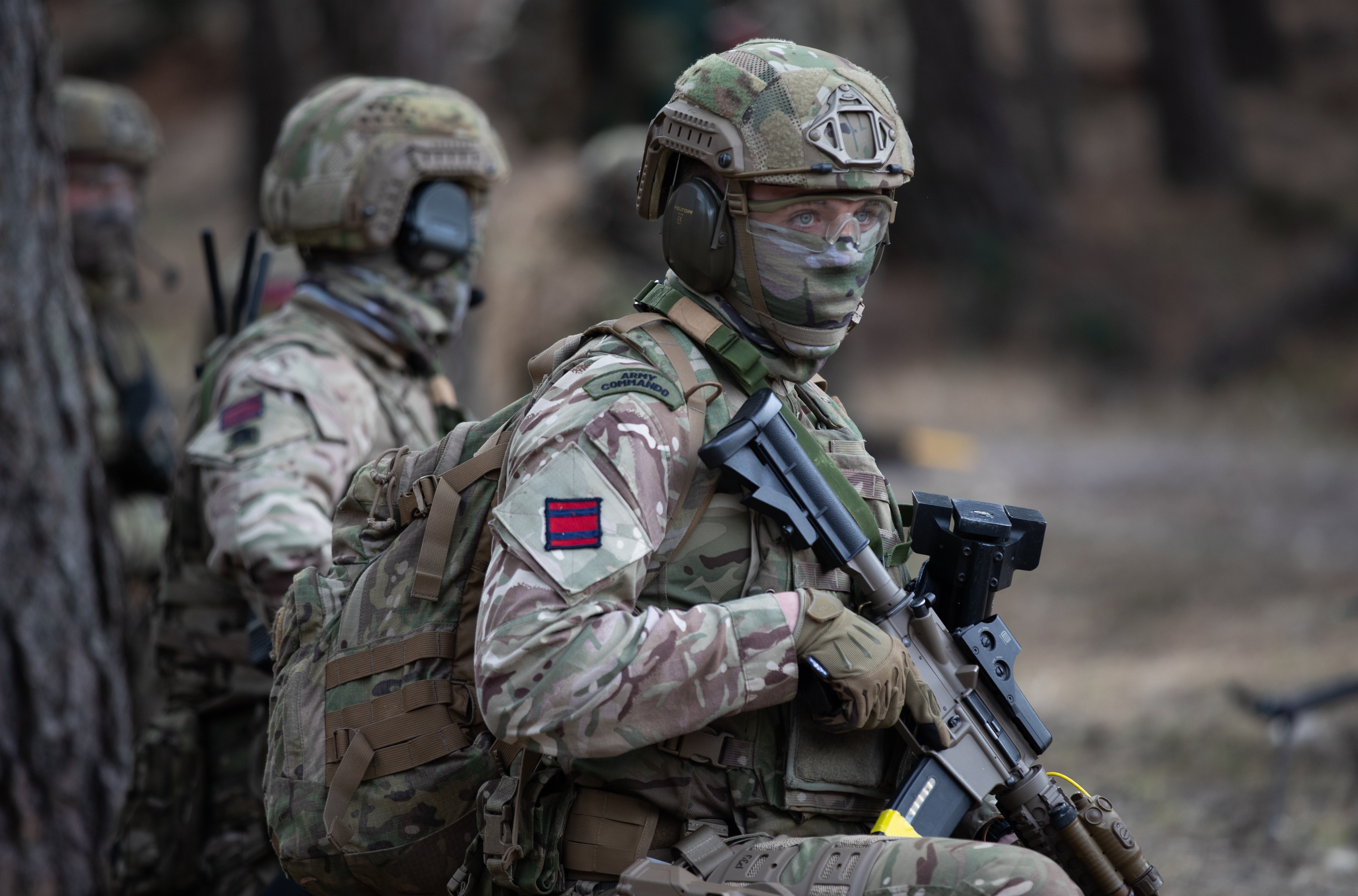Army chief: Nato must be prepared to fight to defend its territory
General Sir Patrick Sanders said there are “no good options” if they fail to deter further Russian aggression in Europe.

Your support helps us to tell the story
From reproductive rights to climate change to Big Tech, The Independent is on the ground when the story is developing. Whether it's investigating the financials of Elon Musk's pro-Trump PAC or producing our latest documentary, 'The A Word', which shines a light on the American women fighting for reproductive rights, we know how important it is to parse out the facts from the messaging.
At such a critical moment in US history, we need reporters on the ground. Your donation allows us to keep sending journalists to speak to both sides of the story.
The Independent is trusted by Americans across the entire political spectrum. And unlike many other quality news outlets, we choose not to lock Americans out of our reporting and analysis with paywalls. We believe quality journalism should be available to everyone, paid for by those who can afford it.
Your support makes all the difference.Britain and its western allies must be “unequivocally prepared to fight” if Russia launches an attack on Nato territory, the new head of the Army said.
General Sir Patrick Sanders, the Chief of the General Staff (CGS), said Russia is likely to emerge from the conflict in Ukraine as an even greater threat to European security.
In his first public engagement since taking up his post, he said it is essential Nato has the forces in place to deter future “land grabs” by Russian President Vladimir Putin.
Speaking at the Royal United Services Institute land warfare conference in London, he warned any further cuts to the size of the British Army would be “perverse”.
His address came as Nato leaders gathering for a summit in Madrid were preparing to massively increase the numbers of troops on high readiness to more than 300,000.
Sir Patrick likened the current situation to the run up to the Second World War, saying Mr Putin’s “brutal aggression” in Ukraine represents the greatest threat to European peace and democracy in decades.
“This is our 1937 moment. We are not at war, but must act rapidly so that we aren’t drawn into one through a failure to contain territorial expansion,” he said.
“In Ukraine, we have seen the limitations of deterrence by punishment. It has reinforced the importance of deterrence by denial.
Putin’s declared intent to restore the lands of historic Russia makes any respite temporary and the threat will become even more acute
“We must stop Russia seizing territory rather than expecting to respond to a land grab with a delayed counter offensive.
“To succeed, the British Army, in conjunction with our Nato allies and partners, must be in place or at especially high readiness – ideally a mix of both. Trip wires are not enough.
“If we fail to deter, there are no good choices given the cost of a potential counter attack and the associated nuclear threat.
“We must therefore meet strength with strength from the outset and be unequivocally prepared to fight for Nato territory.”
Sir Patrick said the threat from Russia raises questions about the future size of the British Army.
“Put simply, the threat has changed and as the threat changes we will change with it,” he said.
“It would be perverse if the CGS were advocating reducing the size of the Army as a land war rages in Europe and Putin’s territorial ambitions extend into the rest of the decade and beyond Ukraine.”
Despite Russian setbacks in the early weeks of the campaign in Ukraine, it still has the capacity to recover and pose a renewed threat to European security, he warned.
“Historically, Russia often starts wars badly. Because Russia wages war at the strategic and not the tactical level, its depth and resilience means it can suffer any number of campaigns, battles and engagements lost and yet regenerate and still ultimately prevail,” he said.
“While Russia’s conventional capability will be reduced for a time at least, Putin’s declared intent to restore the lands of historic Russia makes any respite temporary and the threat will become even more acute.
“We don’t know how the war in Ukraine will end, but in most scenarios, Russia will be an even greater threat to European security after Ukraine than it was before.”